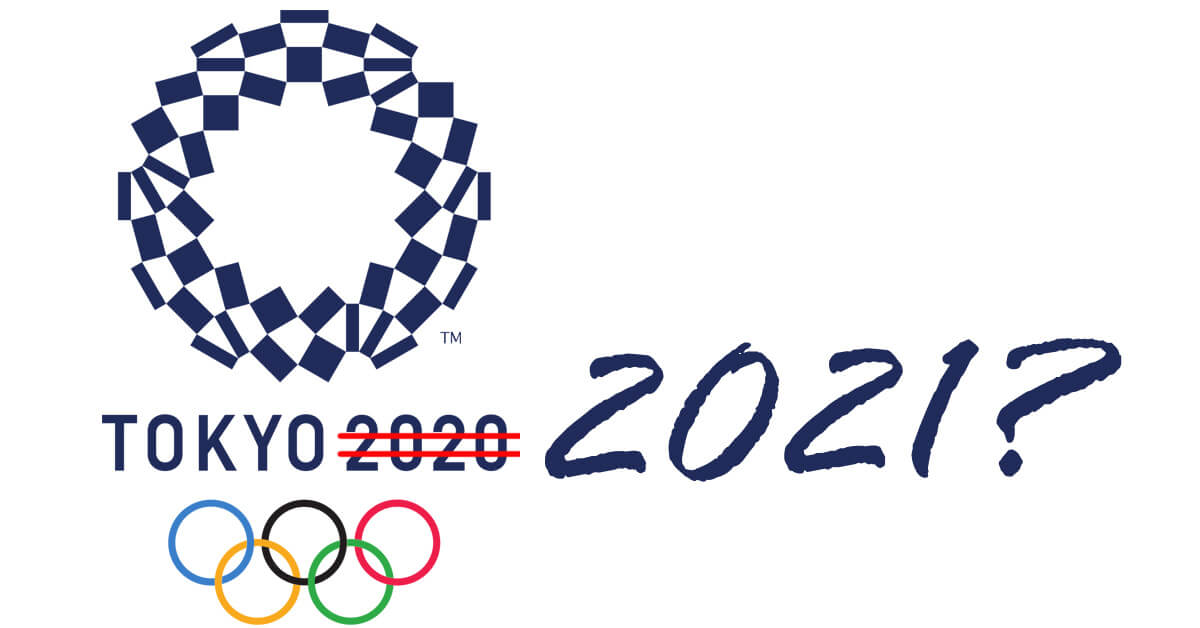It really started coming apart for the 2020 Olympics this morning, as longtime International Olympic Committee member Dick Pound of Canada told USA Today that the Games will be postponed — likely until 2021— because of the coronavirus pandemic; it’s just a question now of working out the details.
While the IOC has backed off of its previous official stance that the Games would go ahead on schedule, a statement from that organization said it would take four weeks to decide whether to proceed as planned or postpone.
The unofficial comments from Pound, known for marching to his own tune, came in the wake of enormous pressure by various sporting federations and organizations. They are citing not only health concerns, but also the fact that many athletes can’t train in the run-up to the Games because their gyms, pools and stadiums have been closed for safety considerations.
Although equestrians can still ride and train their horses, the cancellation of all shows in most of March, April and much of May, as well as into June for some, means opportunities are lost to hone a competitive edge and enable teams to be selected on the basis of recent performances.
Asked for a comment on what will happen going forward, U.S. Show Jumping Coach Robert Ridland said, “It’s far too premature to even speculate.”
He noted from what he’s seen in the media, “It’s sure looking less likely by the minute. But for now, we are planning as if it’s still a go.”
The Canadians, however, are not, with the Canadian Olympic Committee saying it won’t send its athletes if the Games go ahead as planned July 24-Aug. 9. The Australian Olympic Committee also is thumbs down on being able to field a team. As AOC Chief Executive Matt Carroll explained, “We have athletes based overseas, training at central locations around Australia as teams and managing their own programs. With travel and other restrictions this becomes an untenable situation.”
A day later, the German Olympic Committee had joined its counterparts in Brazil, Slovenia and Norway, among other countries, in lobbying for postponement.
Japanese Prime Minister Shinzo Abe, speaking at a parliamentary session, said a postponement of “the Olympics would be unavoidable” if the Games cannot be held “in a complete way” because of the coronavirus pandemic.
IOC President Thomas Bach pointed out that in terms of the disease, “There are significant improvements in Japan, where the people are warmly welcoming the Olympic flame. This could strengthen the IOC’s confidence in the Japanese hosts that the IOC could, with certain safety restrictions, organize Olympic Games in the country whilst respecting its principle of safeguarding the health of everyone involved.”
However, he also noted that the spread of the virus elsewhere may make that impossible, leading to “the conclusion that the IOC needs to take the next step in its scenario-planning.”
It is, however, enormously complicated to handle all the details for postponement, whether until later this year or into 2021, because there are so many things to consider, from availability of hotel rooms and venues to dealing with the schedules of broadcasters and other sponsors. It will require much compromise to reach an agreement that makes postponement possible.
Meanwhile, the Olympic Federation of Ireland is contacting its member sports organizations to get their views on a variety of topics, including restrictions to the training environment for their elite athletes or halting training temporarily on the grounds that the OFI feels the Games are likely to be postponed.
The OFI said the information obtained through similar surveys will be used to provide a country-by-country update that the IOC said it will be asking from all National Olympic Committees.
The Olympics have never been postponed, though they were cancelled once during World War I and twice during World War II. There also have been boycotts of the Games, most notably for the 1980 Moscow Olympics, when the “alternate Olympic” equestrian events were held in Europe.

